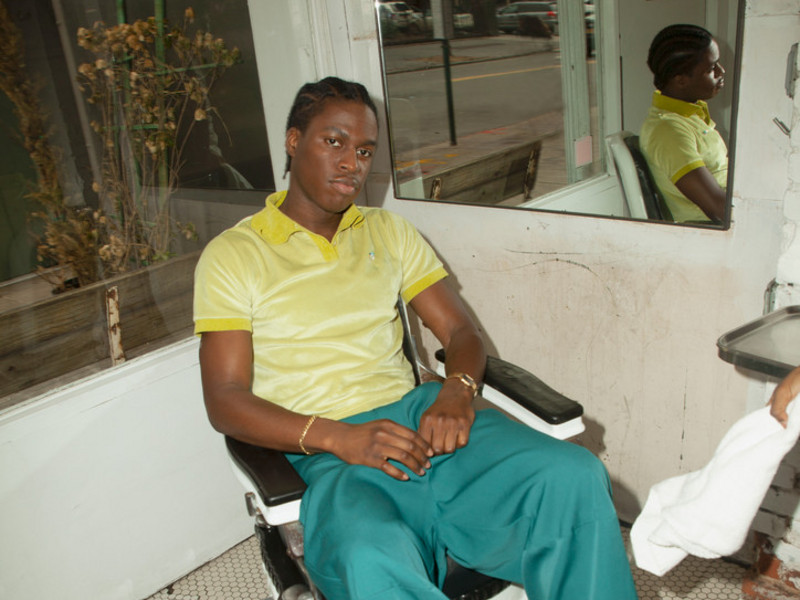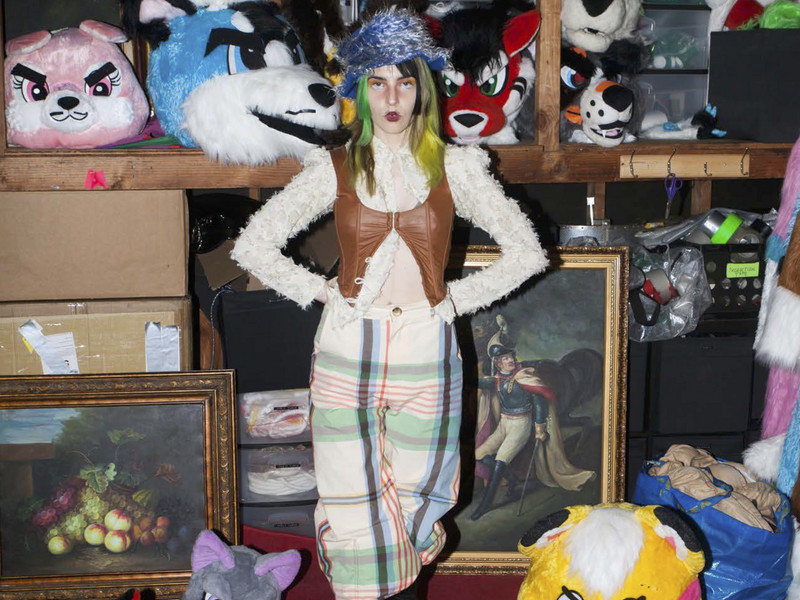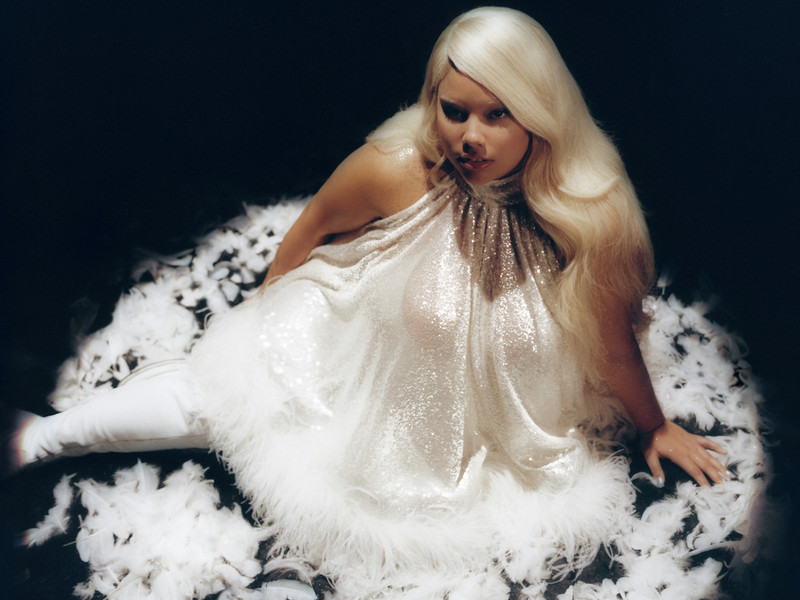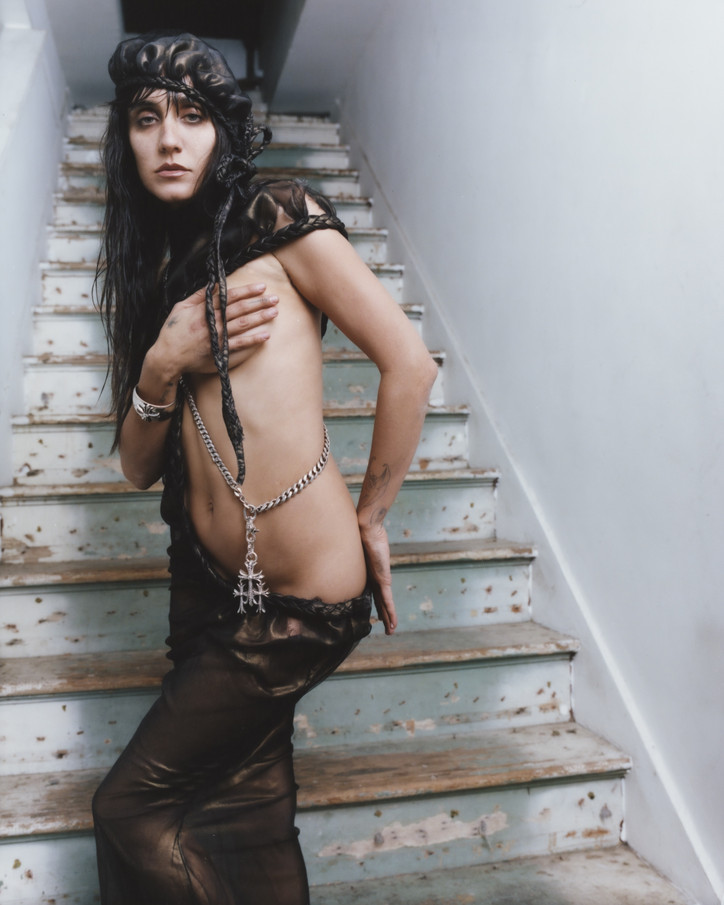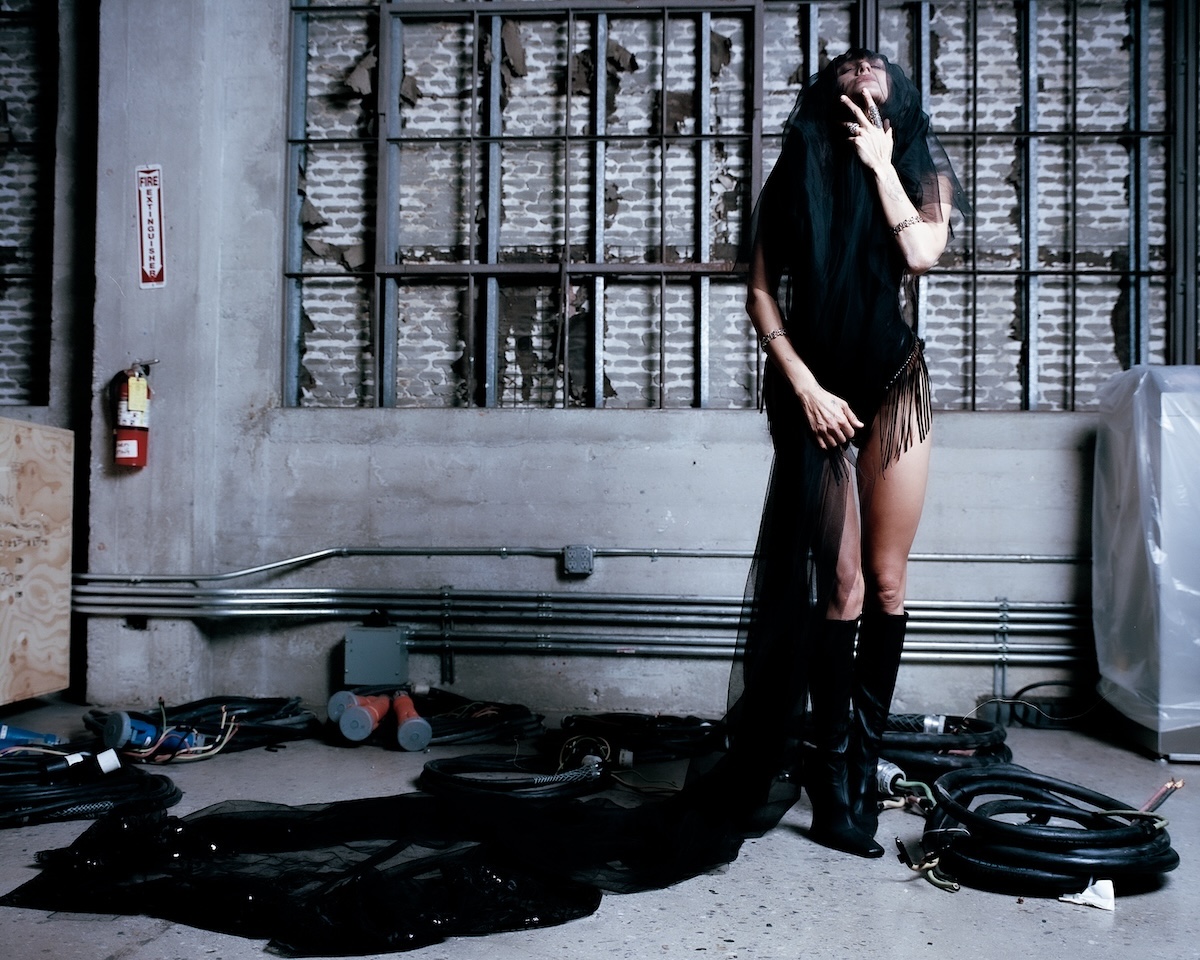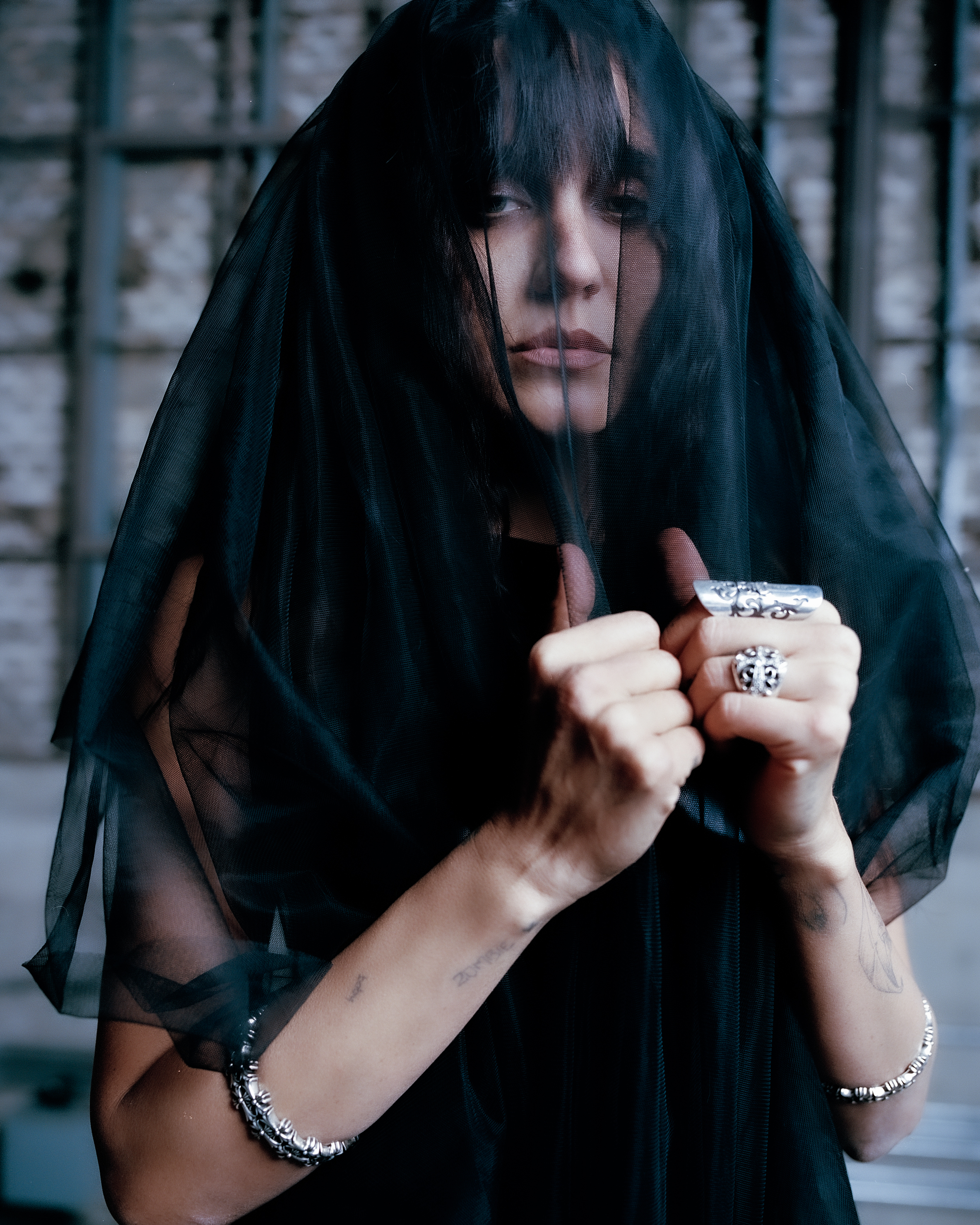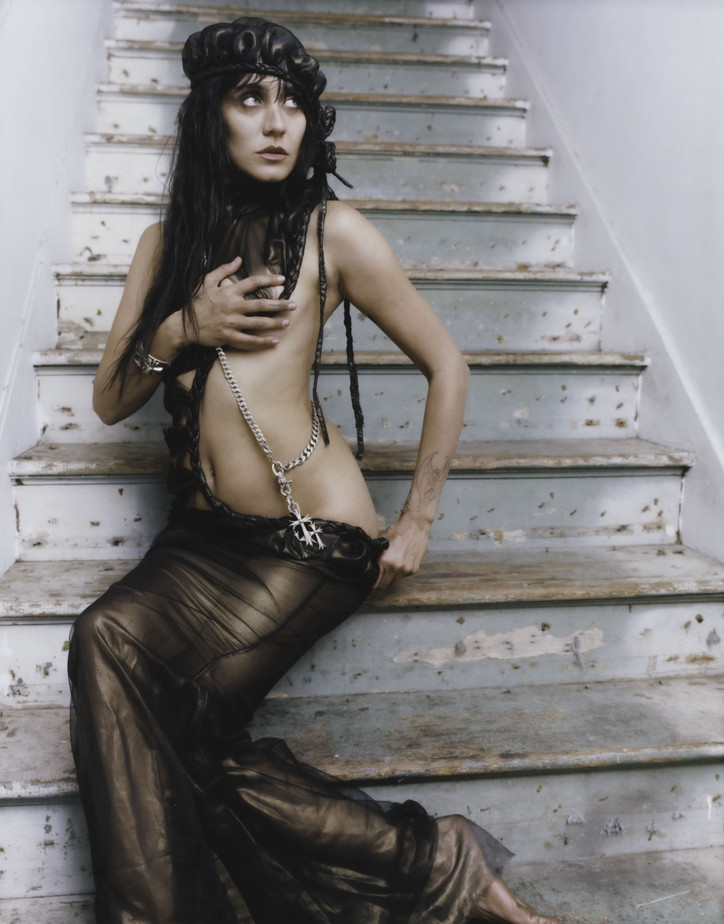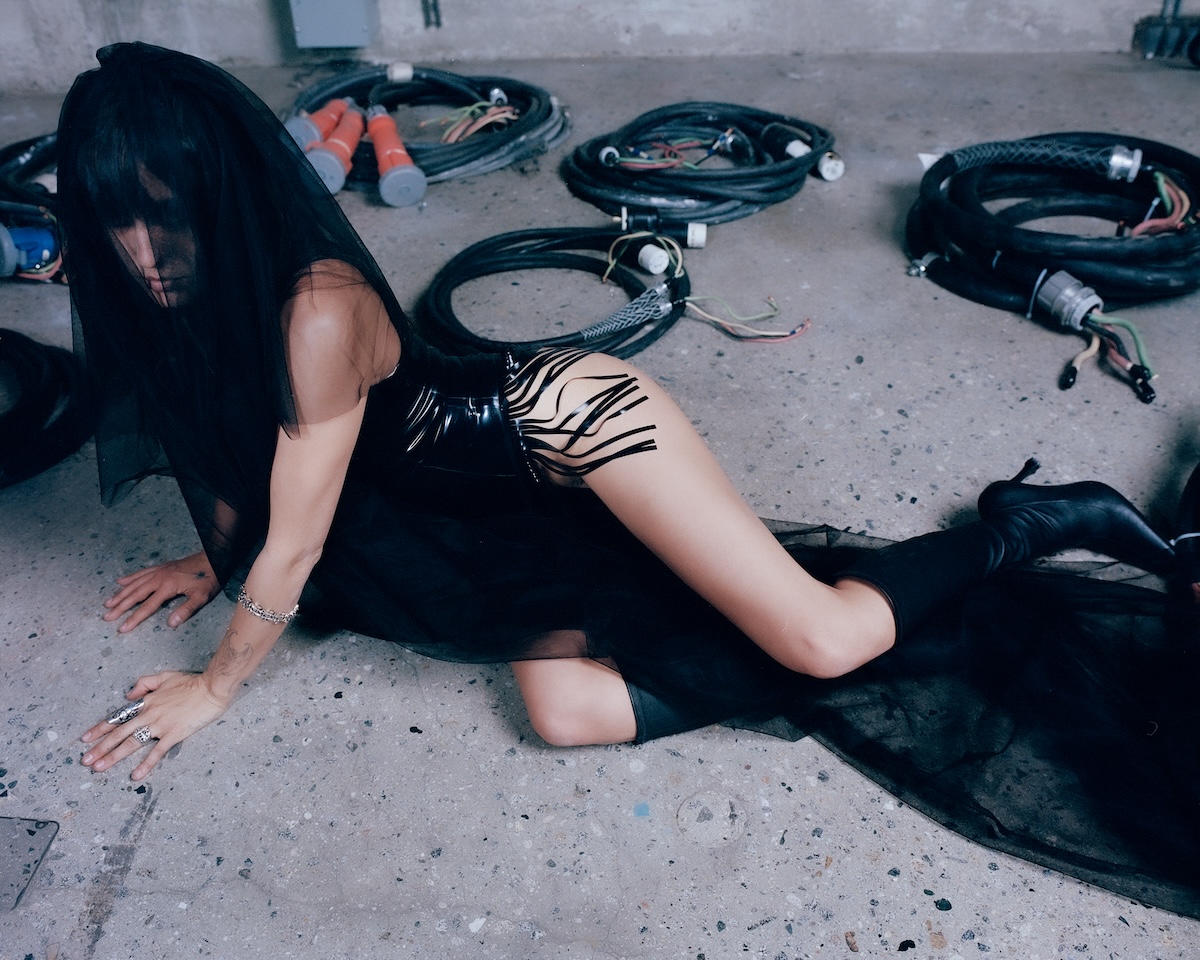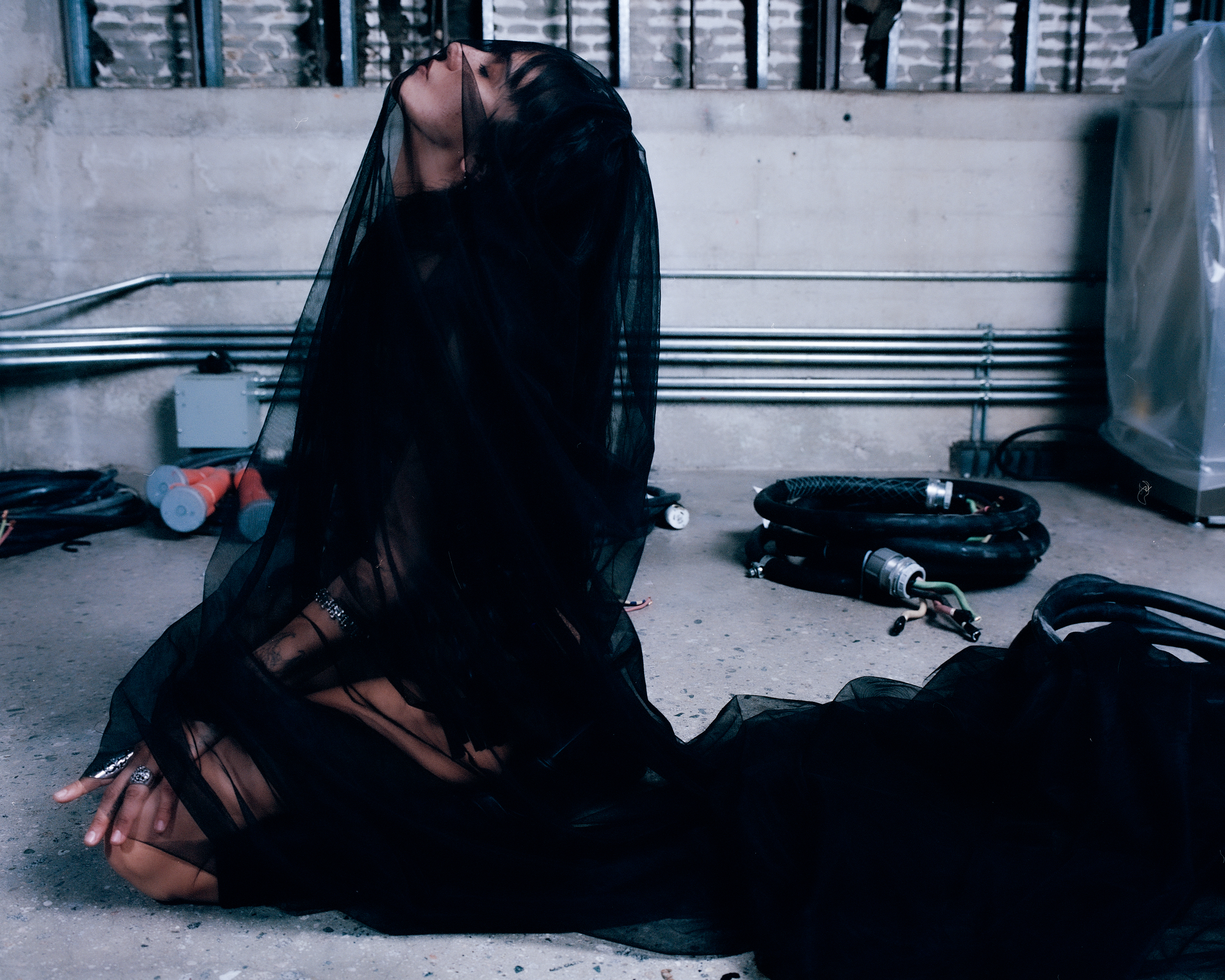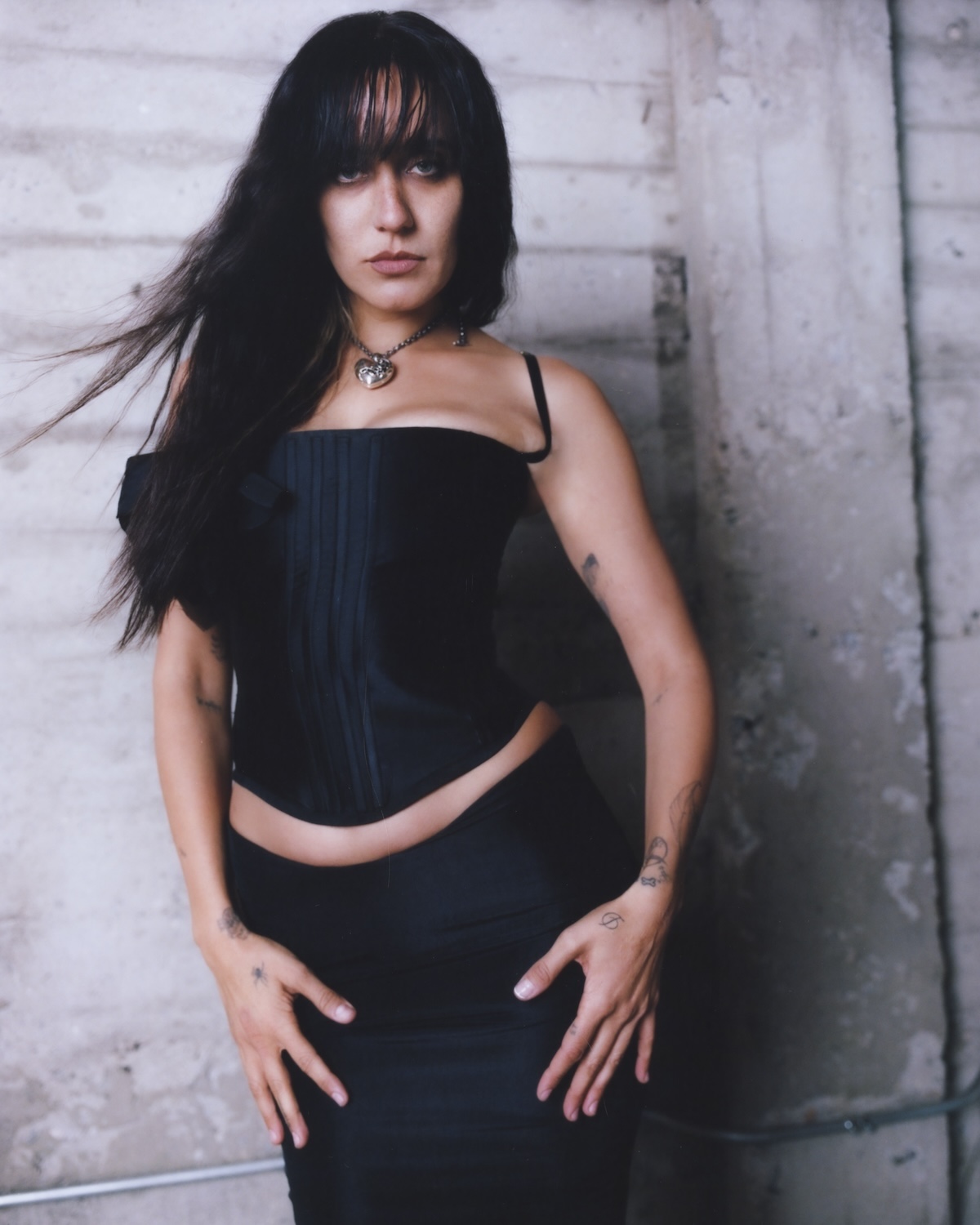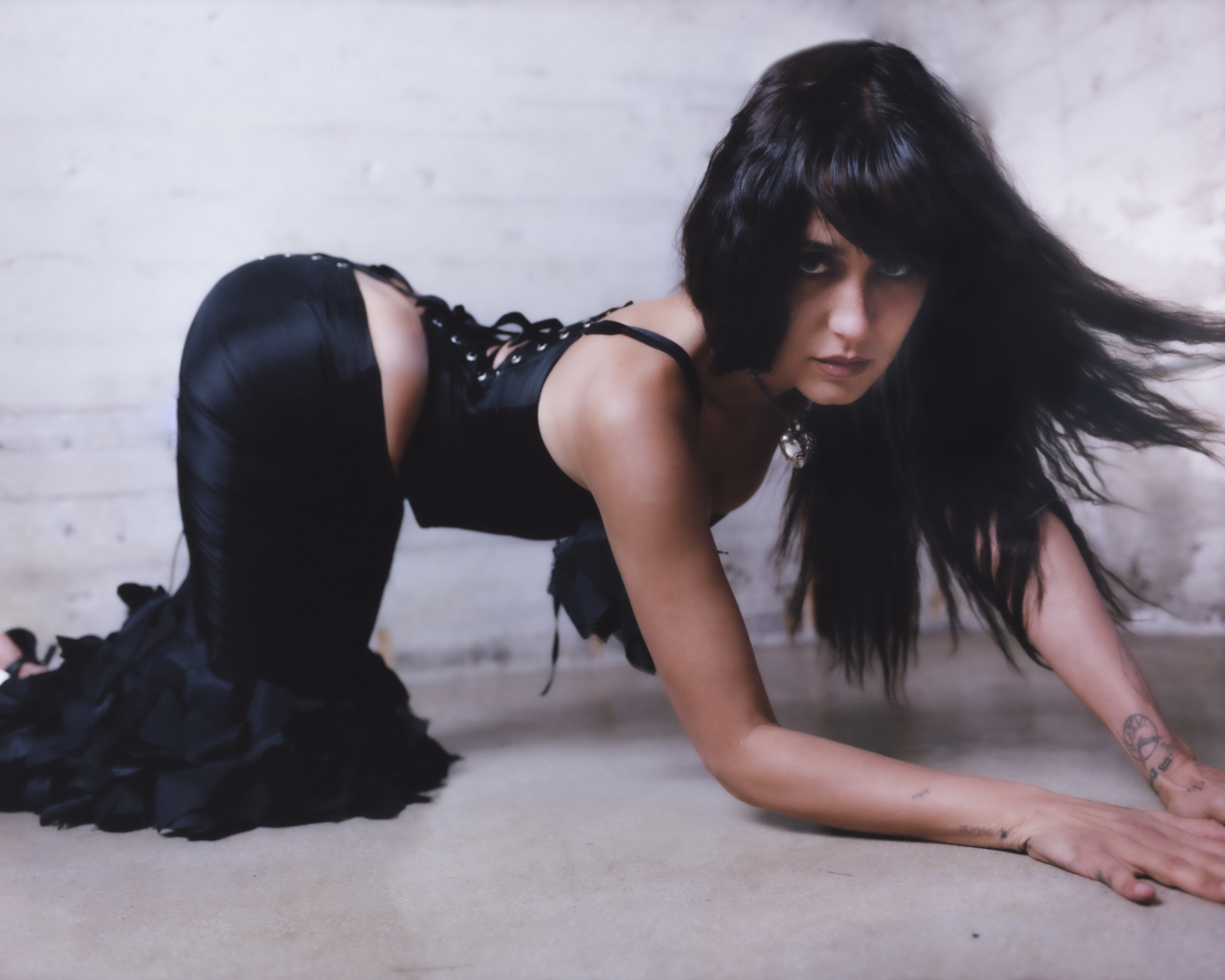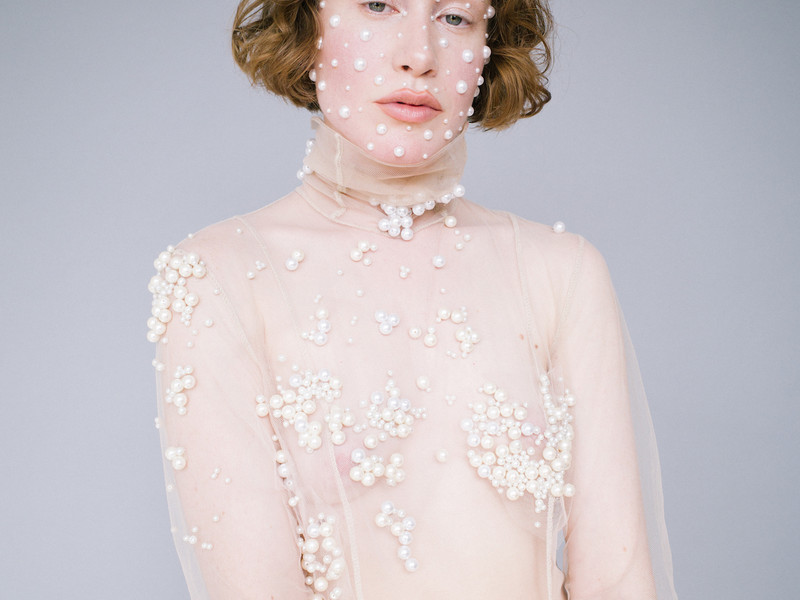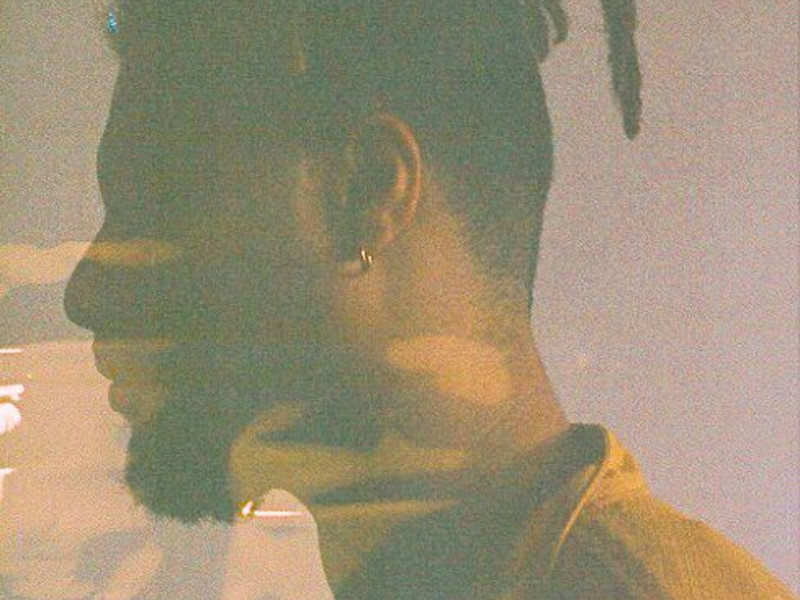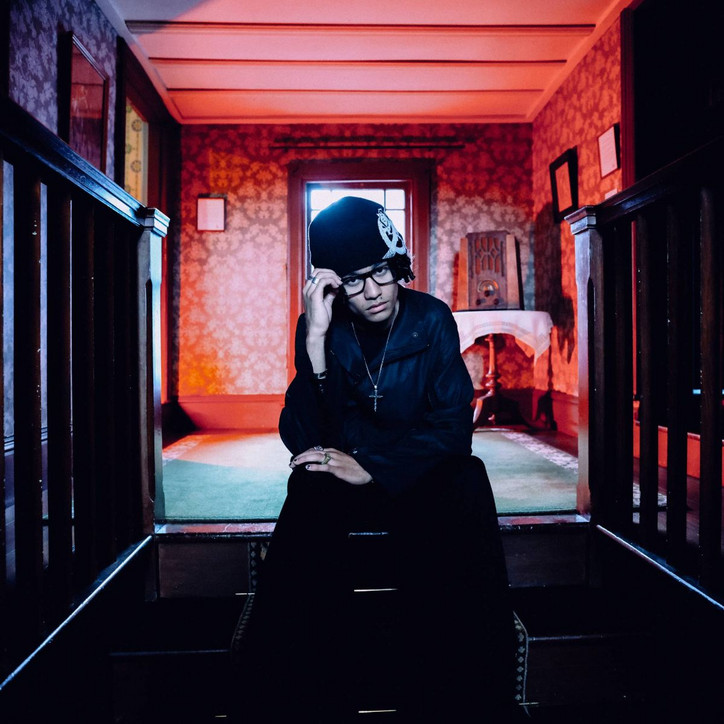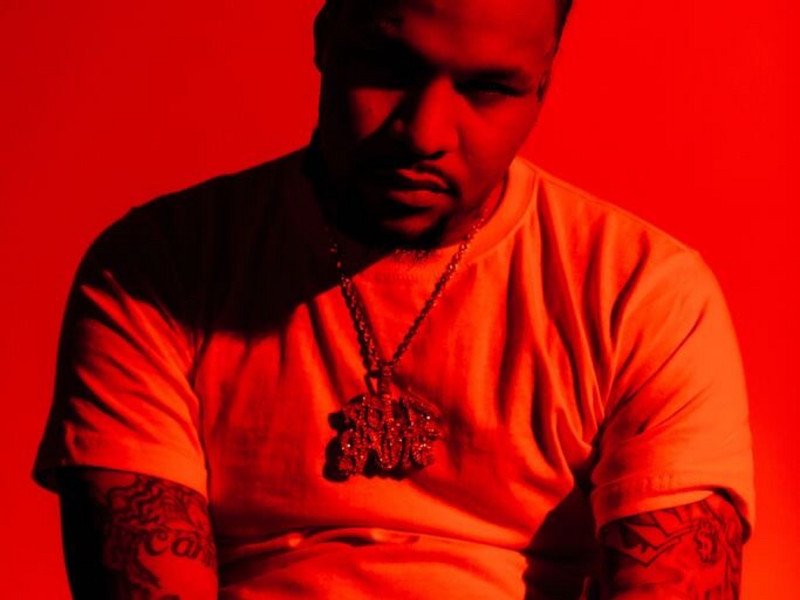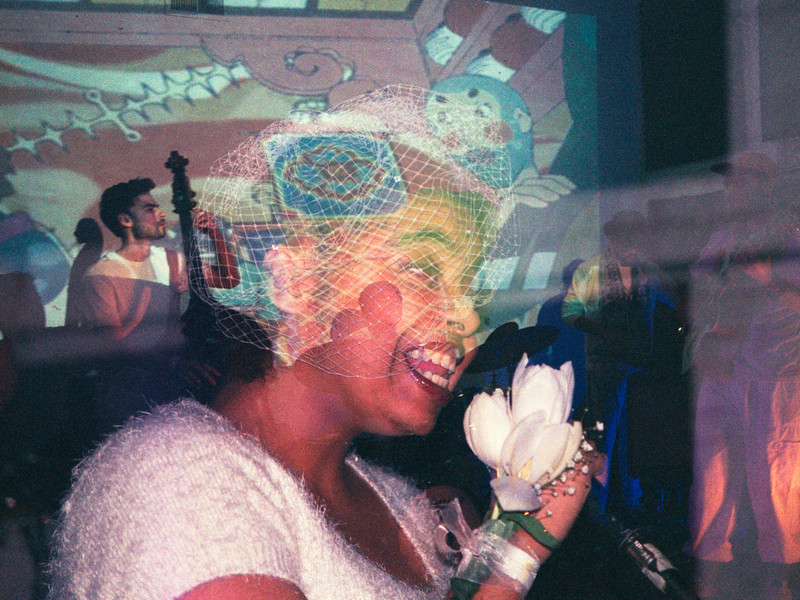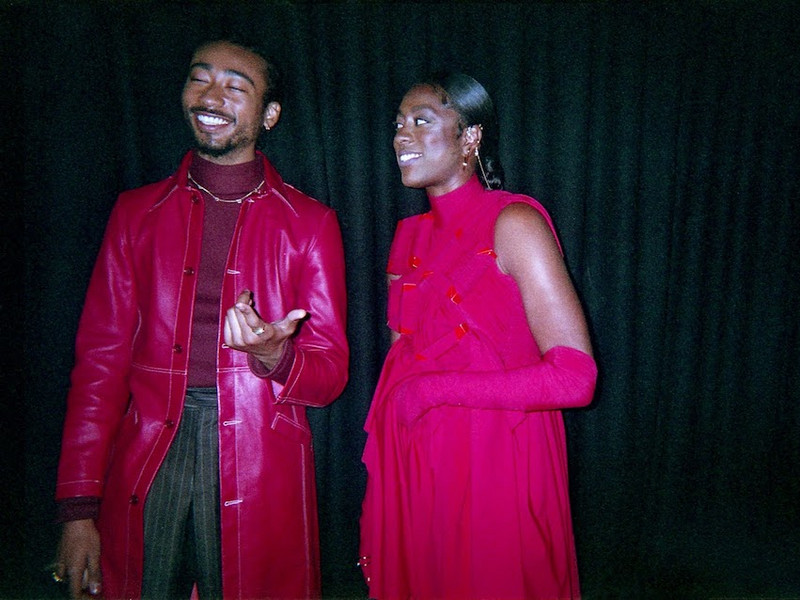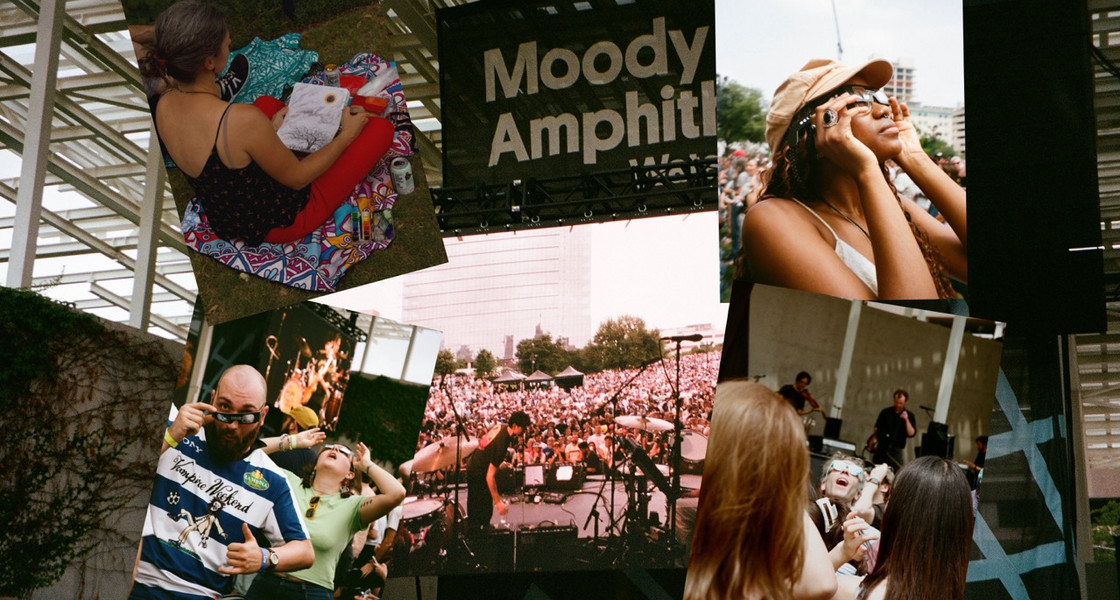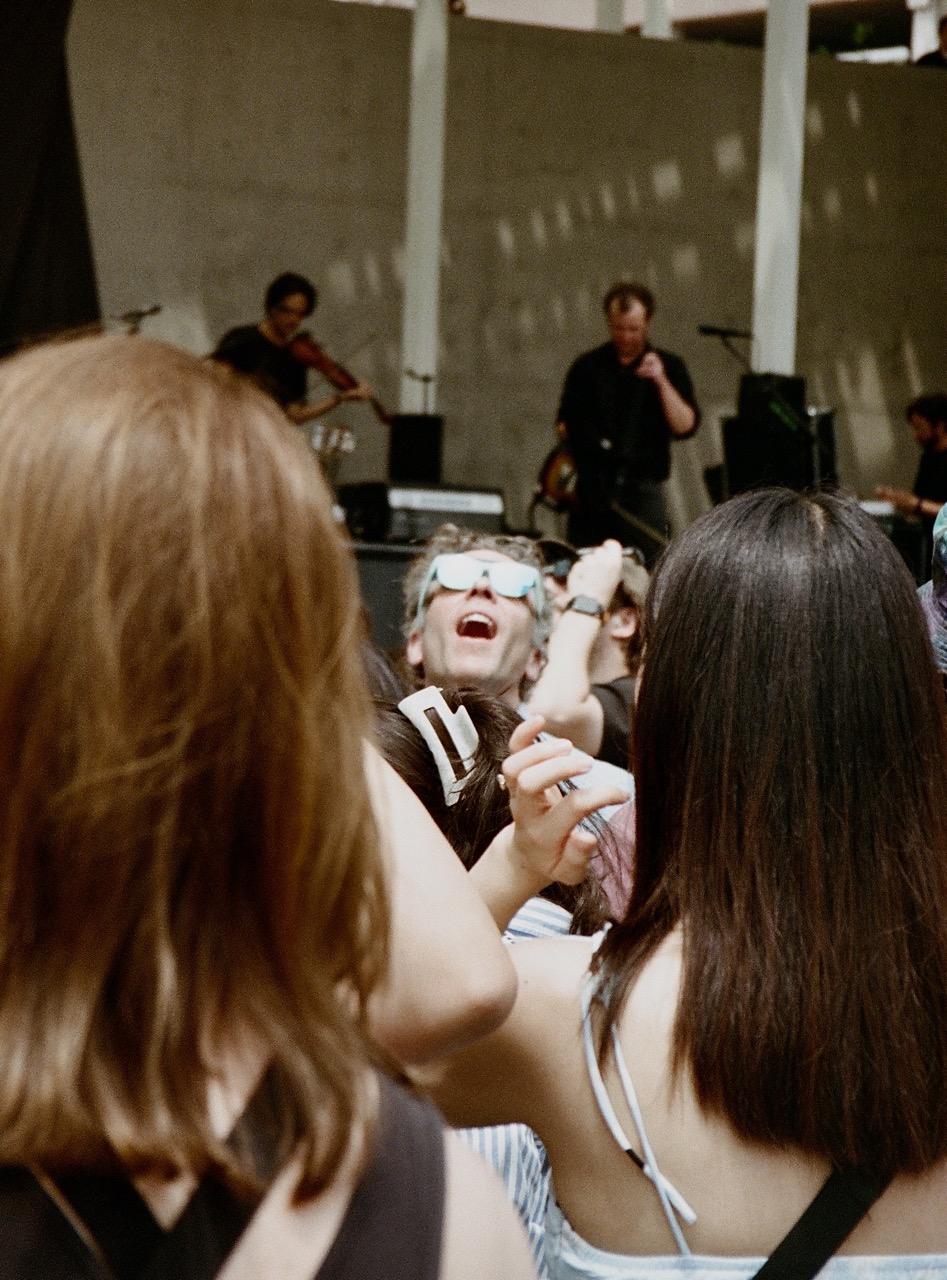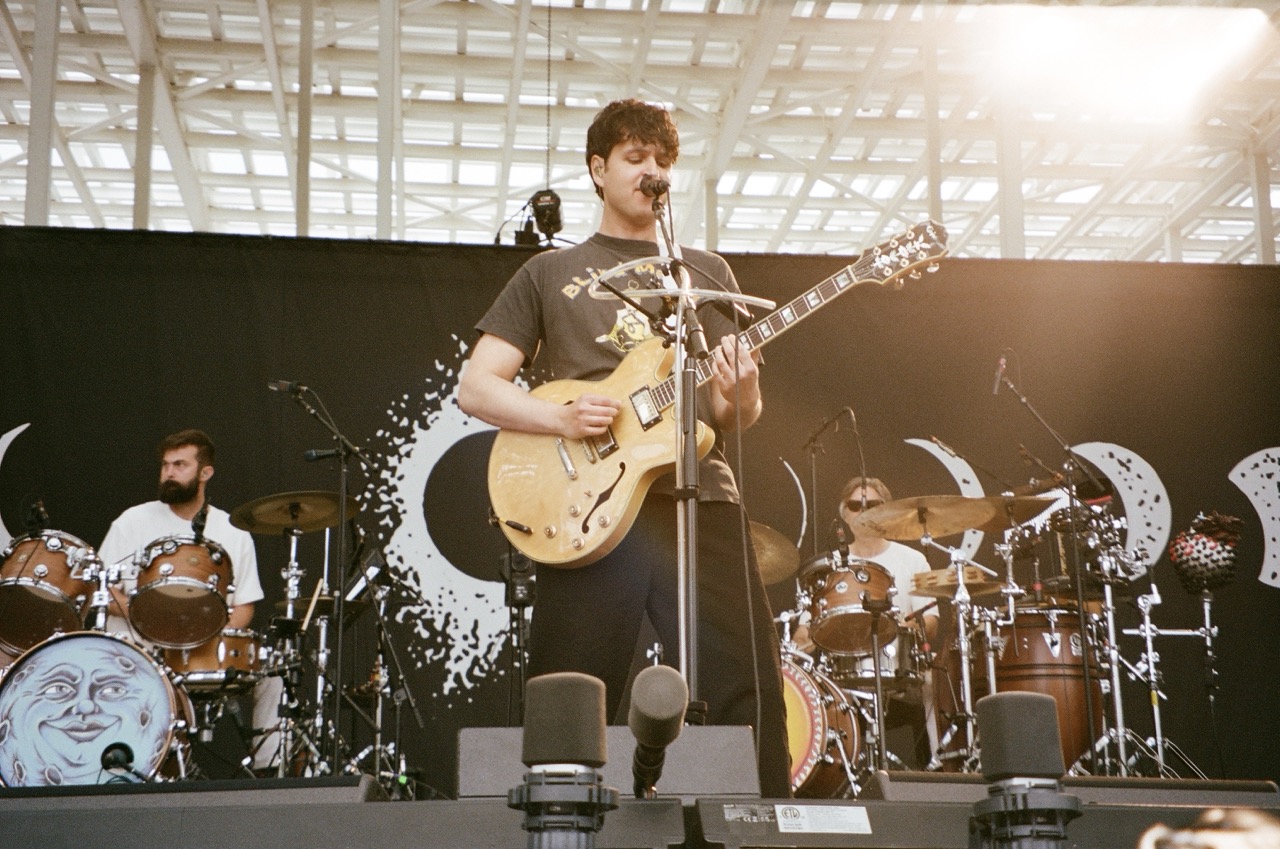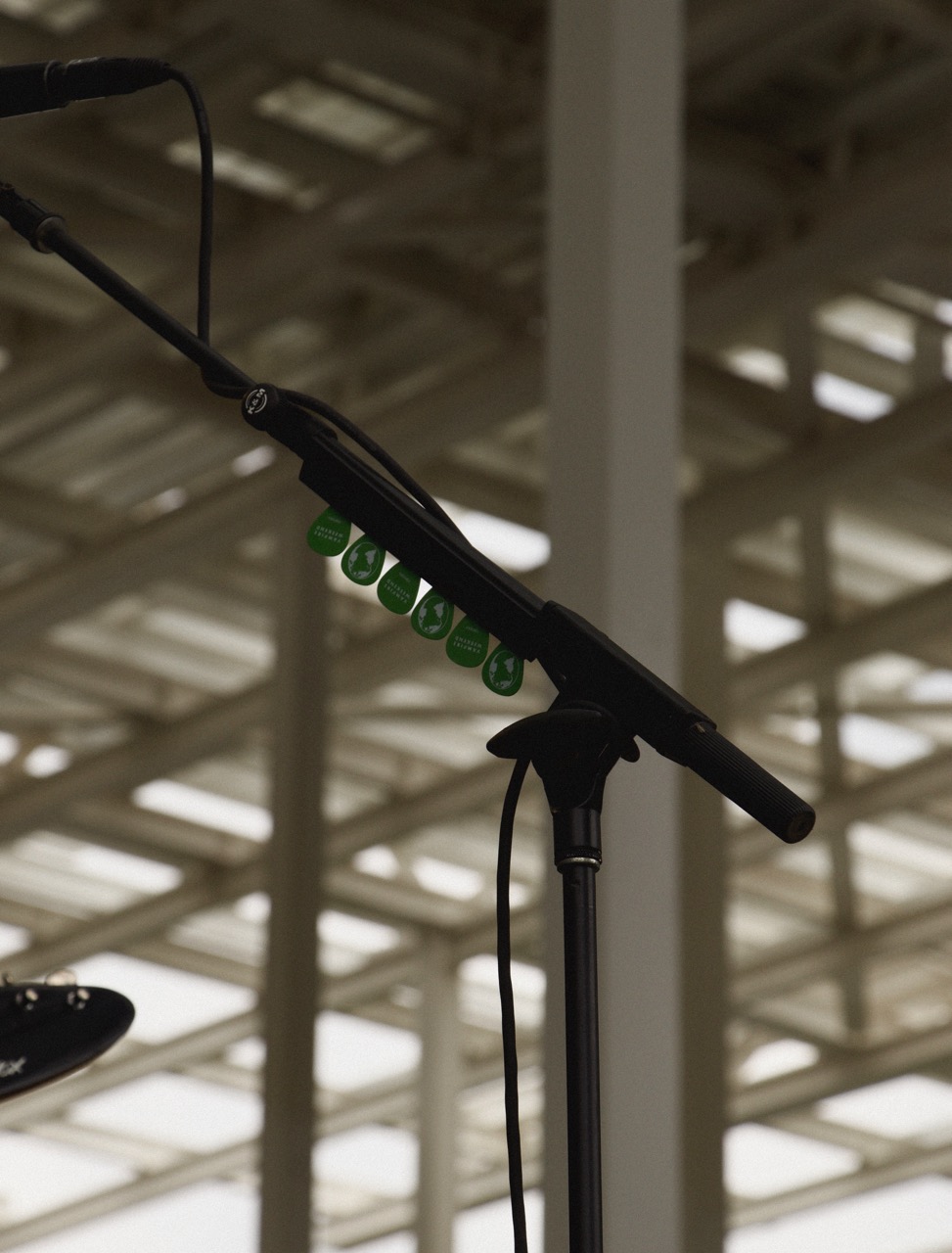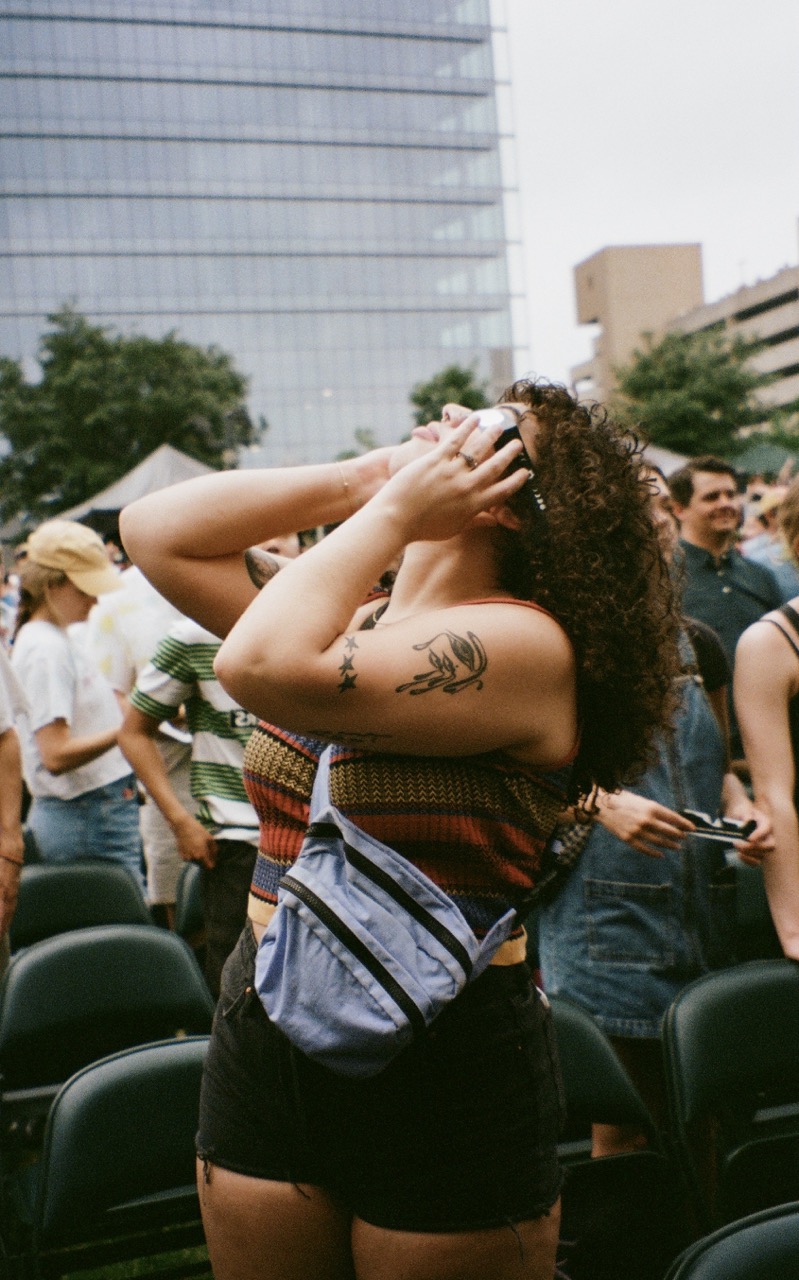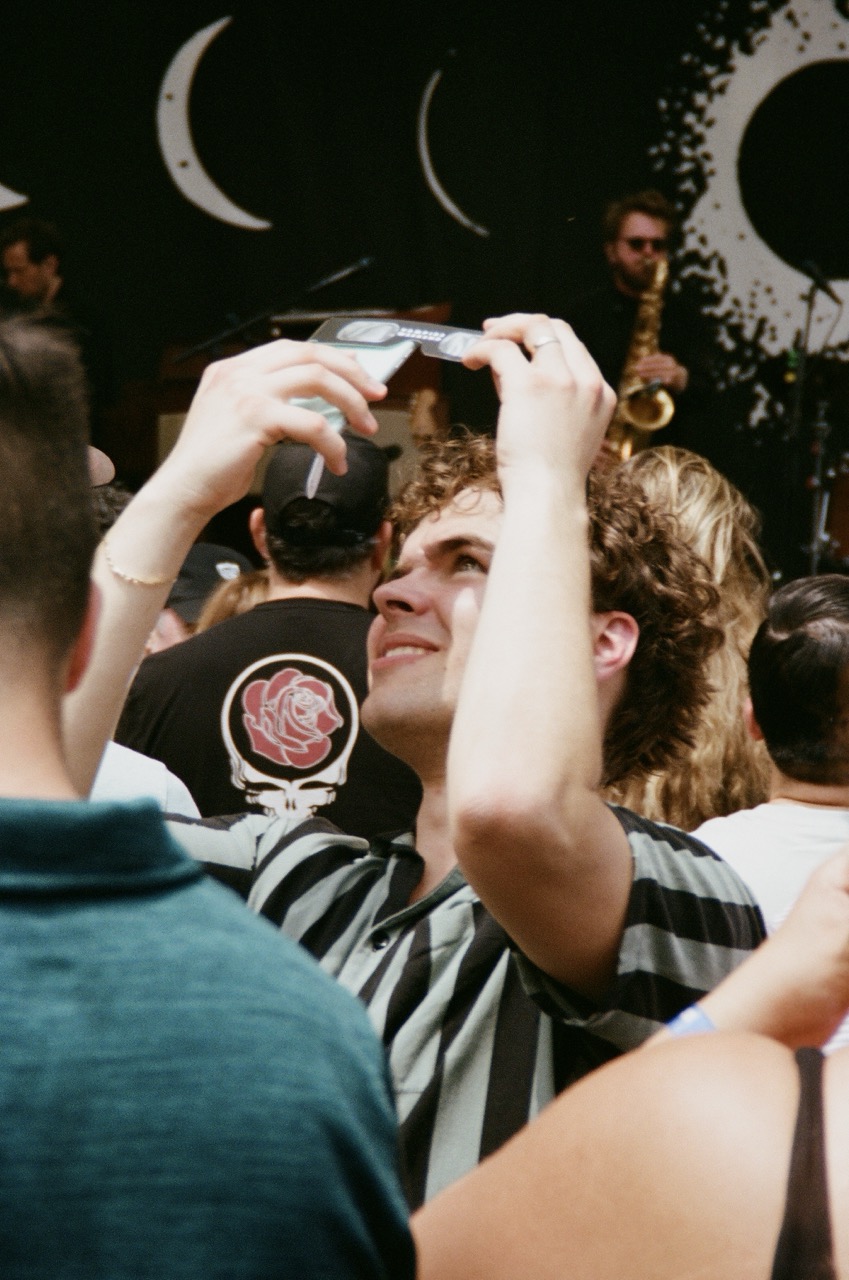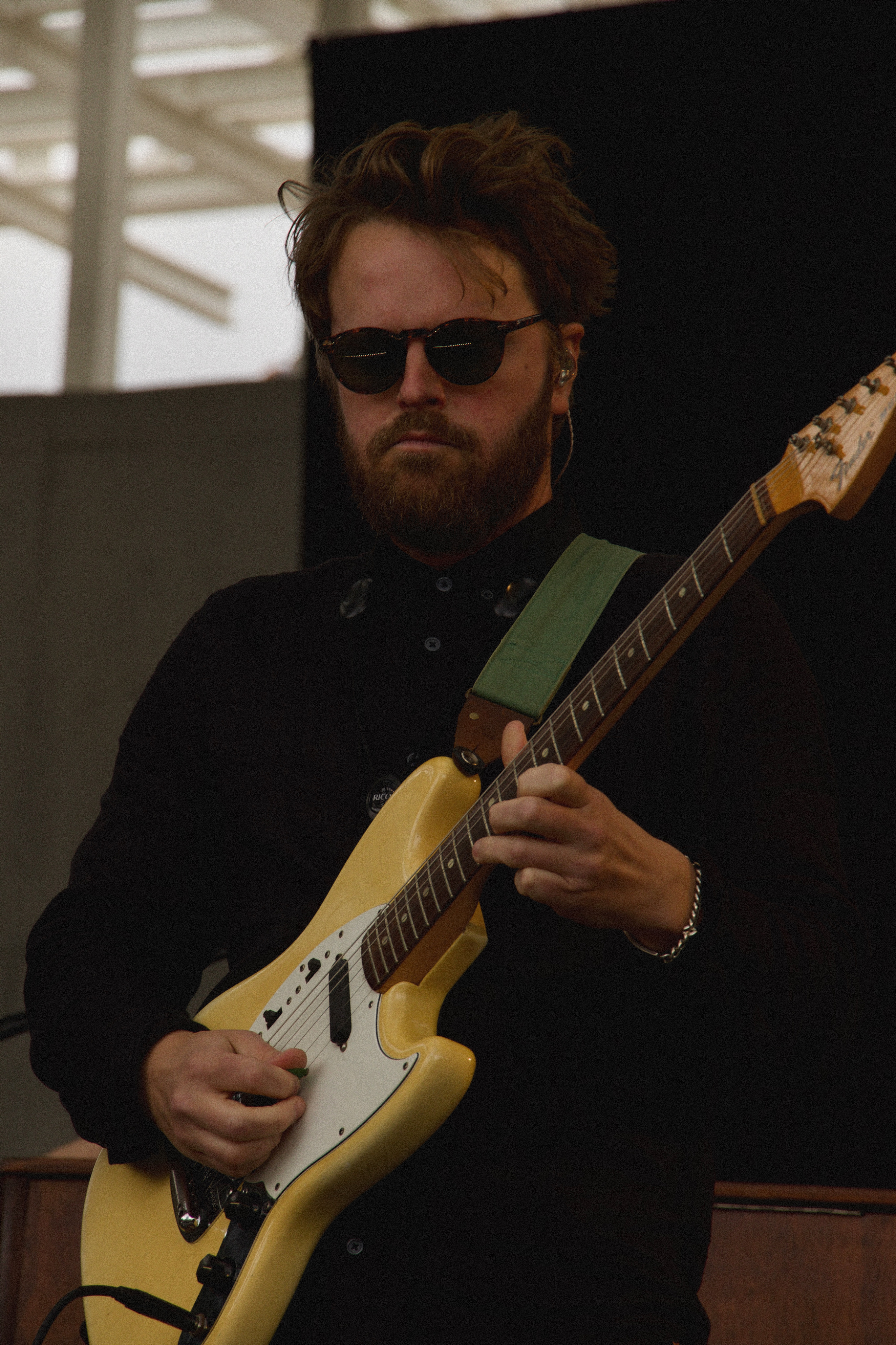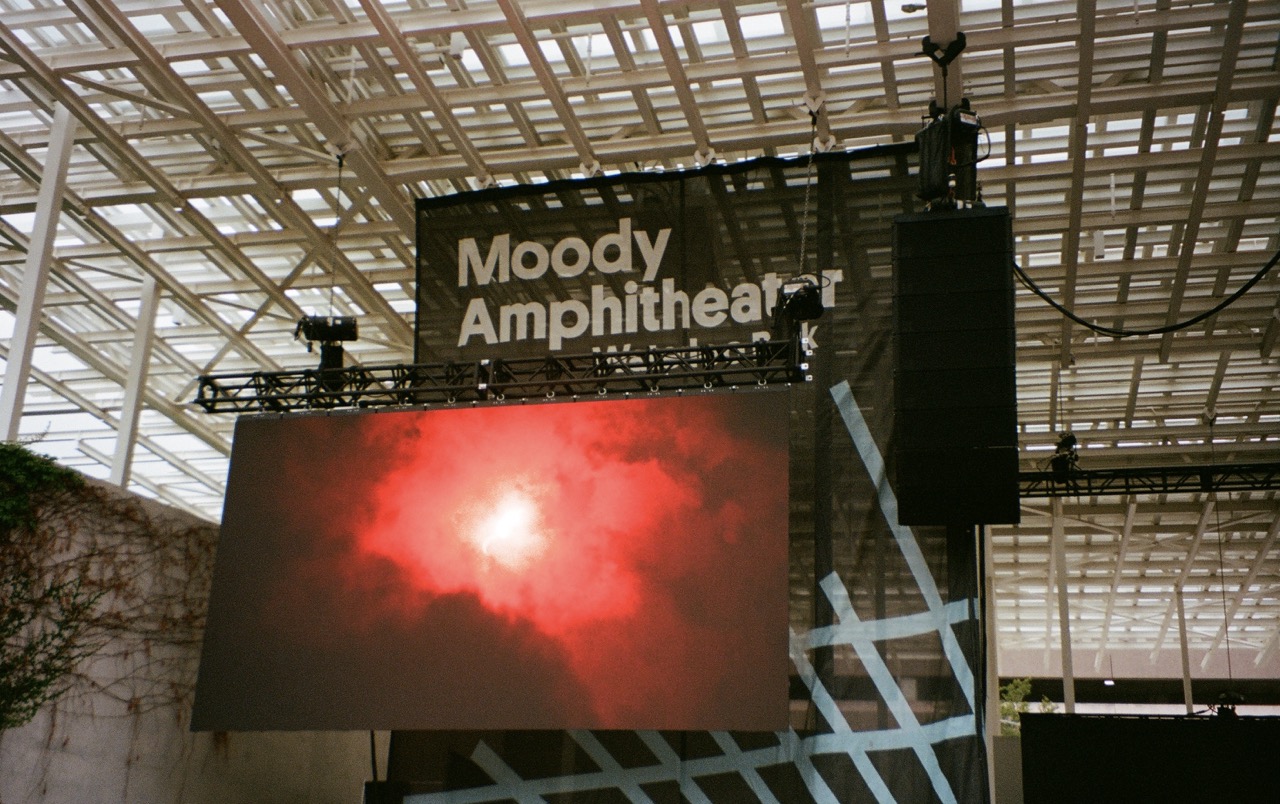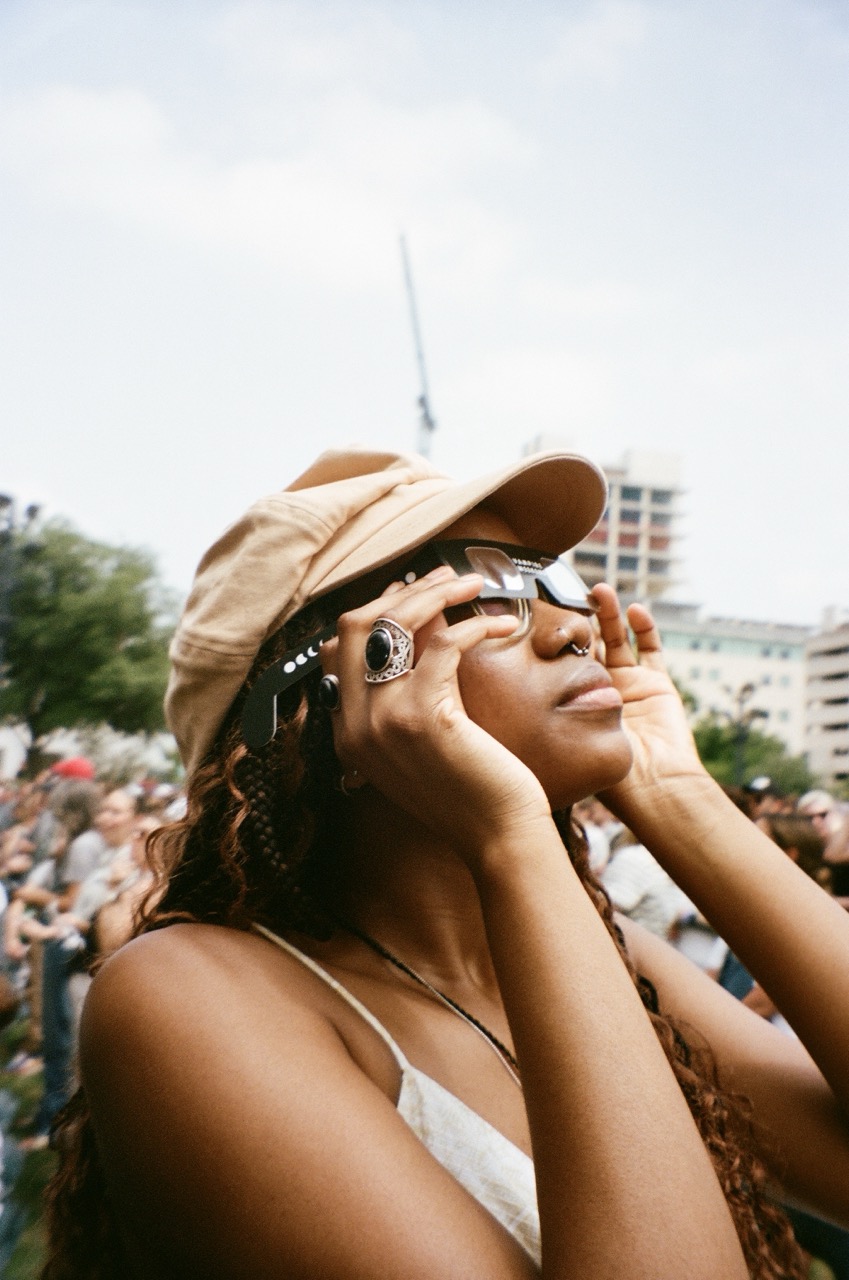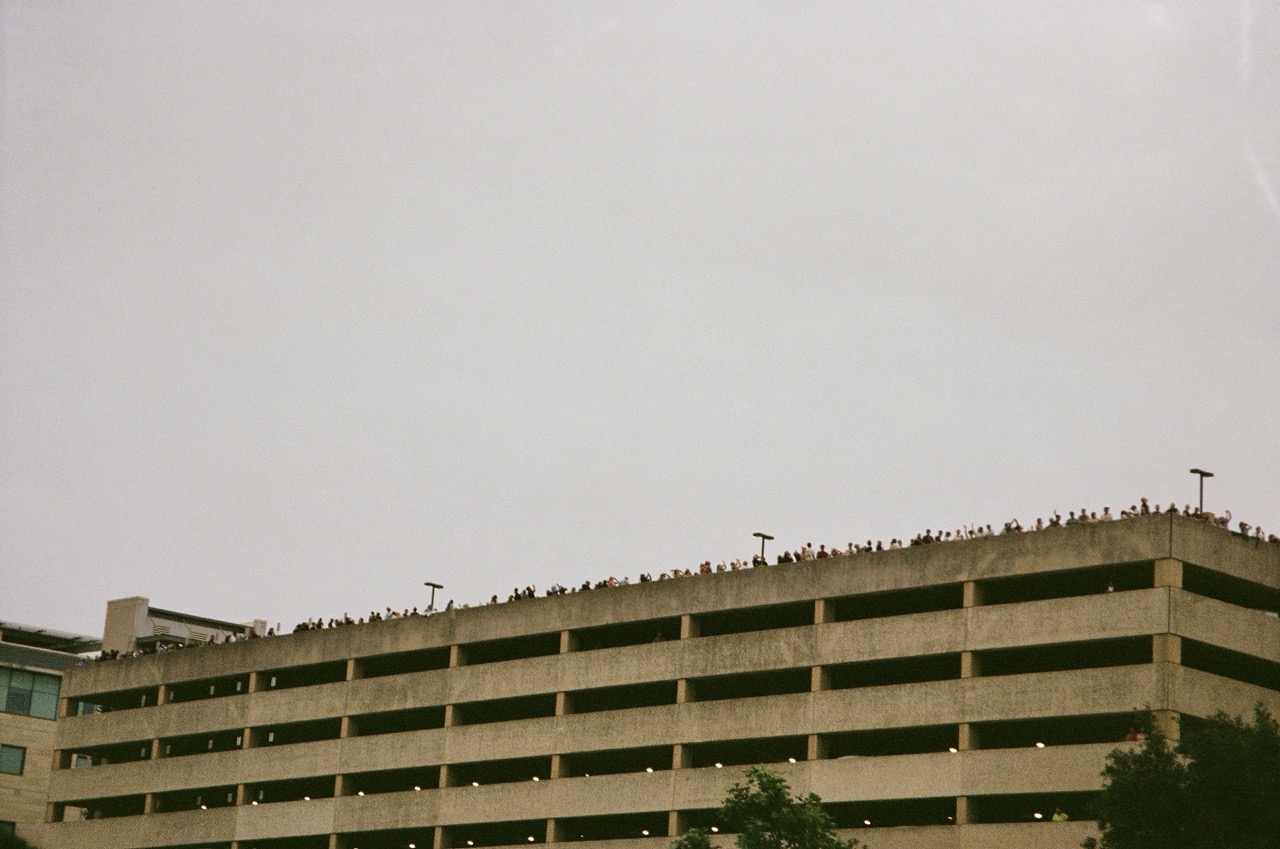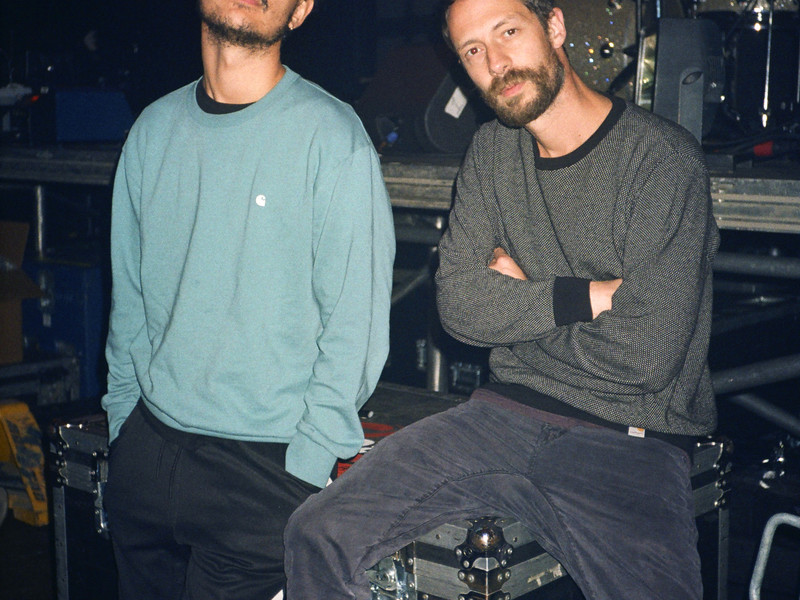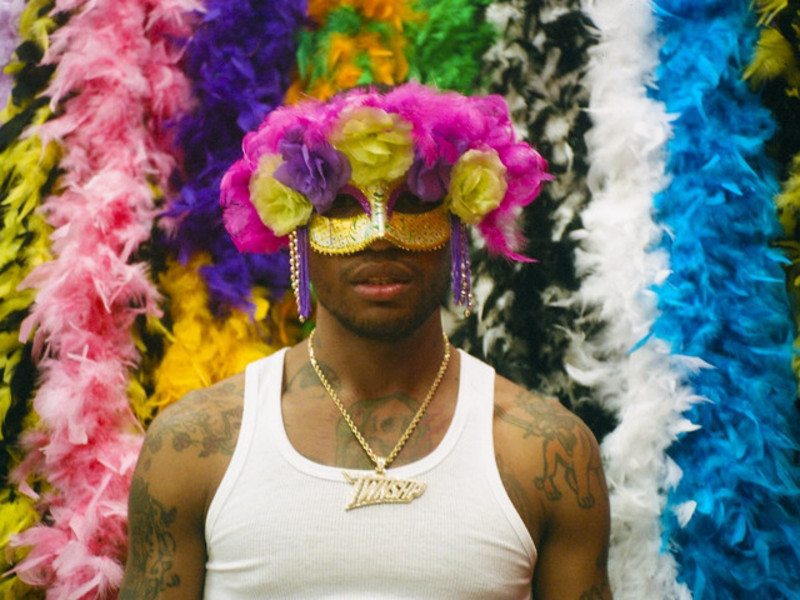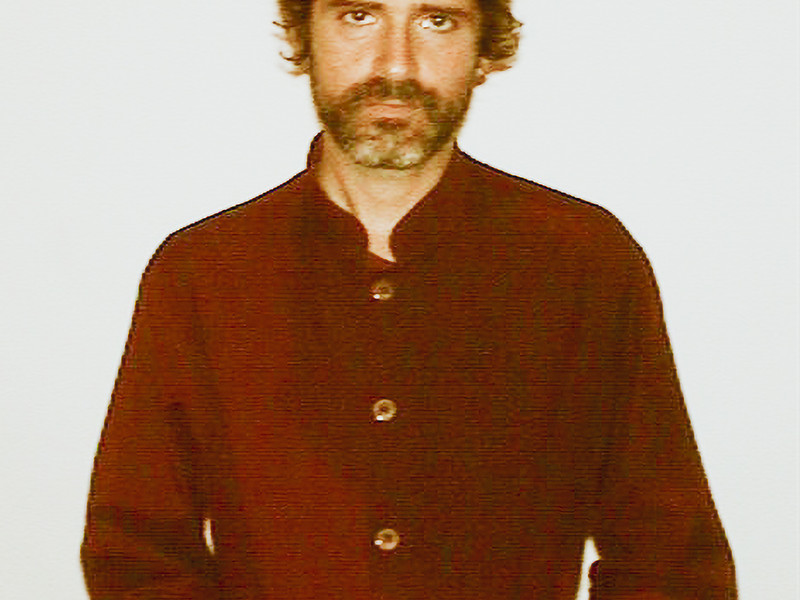Sounds of the City
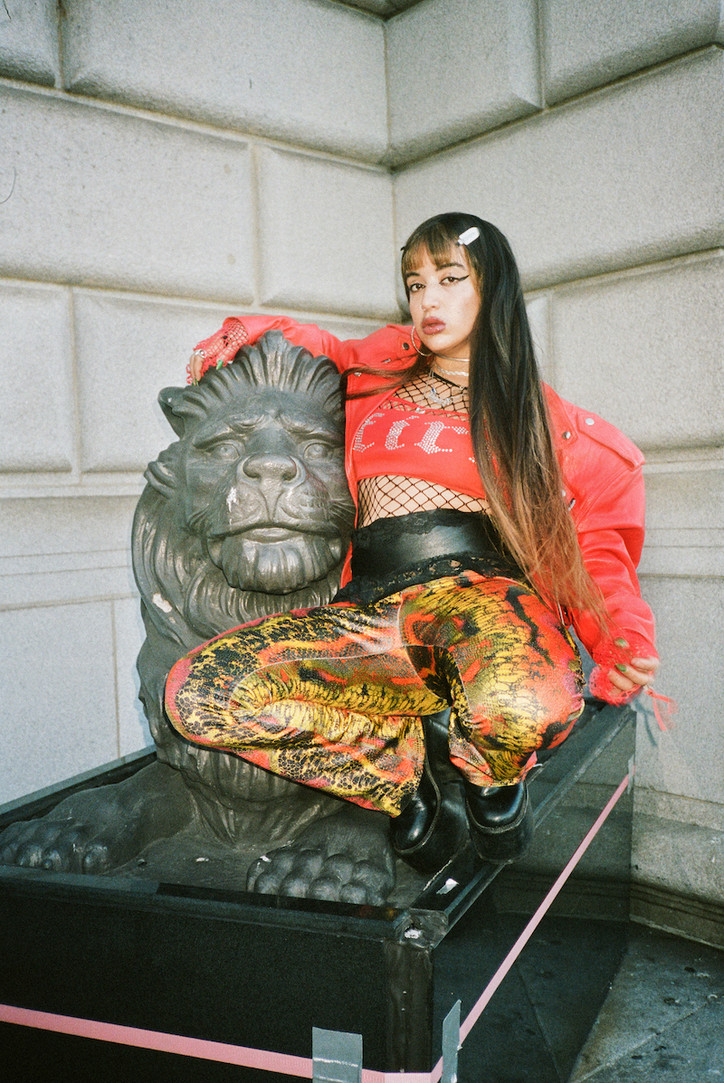
“Pauli’s on!” I say laughing, as my group starts picking up the pace to catch their set. Breaking through the trees we find an anarchic queer utopia; hundreds of well-dressed weirdos climbing trees, kissing, and mingling as if they were at any other venue. At the center of the clearing, surrounded by a mass of bodies all jumping and dancing and cheering, we see Pauli Cakes—the mastermind behind this whole experience—at the decks blending their signature mix of techno, reggaeton, baile funk, jersey, and random sounds from the internet.
The forest raves, as well as the larger renegade rave movement, work in opposition to the current climate of finance driven New York nightlife. They begin with a group of friends lugging a power generator out to some remote location, profit fully from donations (which are many times given directly to in-need community members), and end when the cops arrive—the spectacle of their swarming helicopters and fully outfitted squads scrambling through briar bushes being a big part of the fun. These events are non-hierarchical, spontaneous, and feel rebellious and exciting.
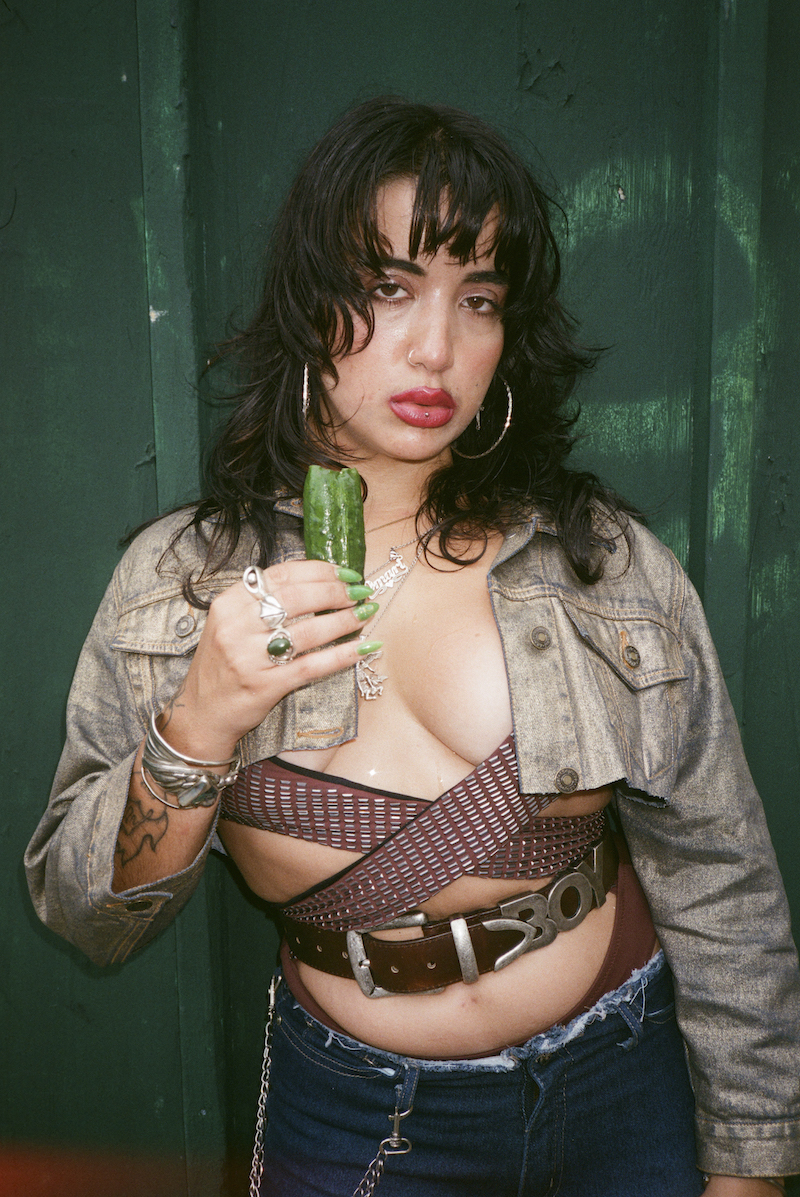
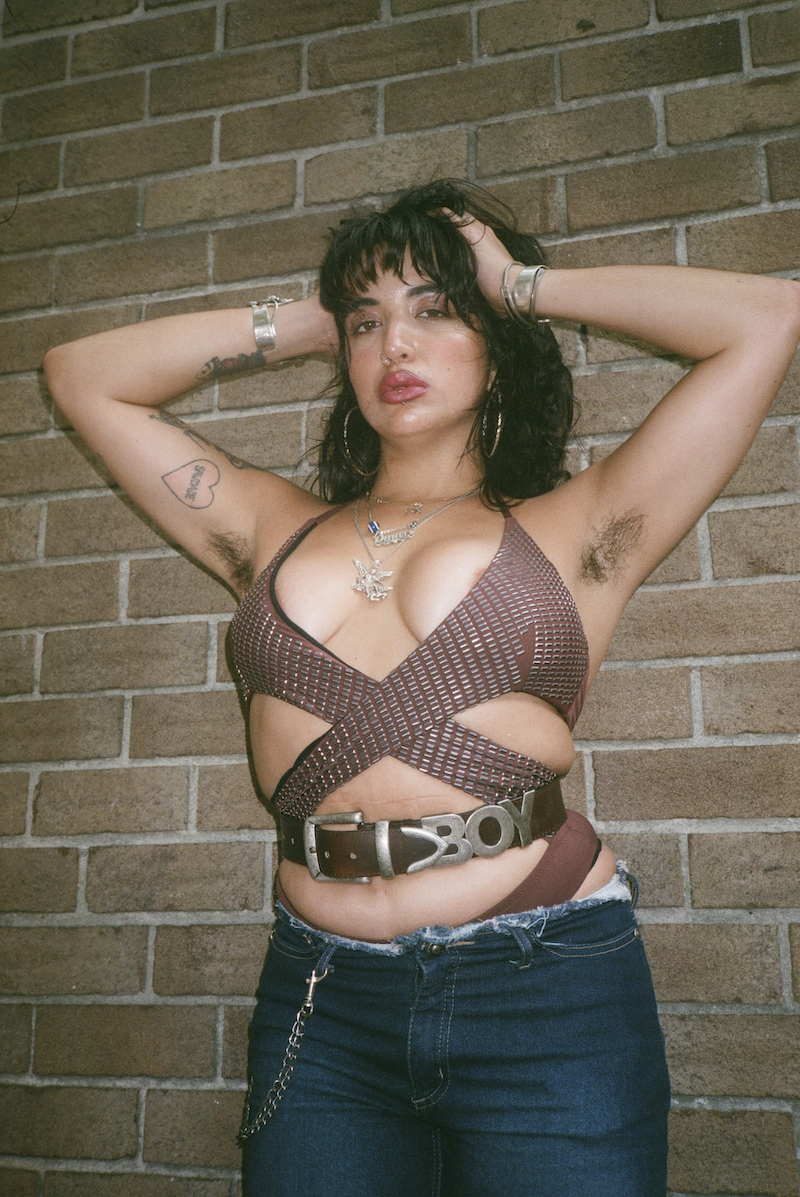
On a sweltering summer day, I ventured to Pauli’s tidy and artfully decorated apartment in Ocean Side, Brooklyn. They answered the door with a hug, donning perfect eye makeup, a sparkly blue tube top, denim short-shorts, and a pair of white ankle socks where their eight-inch platforms should have been—a far cry from their wrapped-in-chains-and-glitter club looks, but still more ostentatious than the average working-from-home outfit.
“Sorry, my place is a mess,” they said, gesturing to a small pile of unopened mail. I was just happy they had air conditioning.
Pauli began DJing in public at 8am on New Year’s Day 2017 at a DRTY SMMR party after the last DJ had finished, but party goers weren’t ready to stop dancing. “I got my laptop and started playing music, and everyone [was super excited about it]. I didn’t really know how to use the equipment yet, I was just boop-boppin’ on my iTunes,” they said.
From there, their career in music joined their background in nightlife, going hand-n-hand, each set of talents being honed and aiding the other. DJing and music became a further creative extension for this Bronx native’s life-long love of community and hedonism.
“I’ve always loved bringing people together. [In high school], I started throwing parties every once in a blue. They’d always get a crazy response. I’d be like, ‘who has a free crib? Lemme throw a party! Maybe a hookie party’… obvy back in the day I was mad boonky, but I loved getting people together.”
Their phone was going off constantly, and they took a moment to make sure it wasn’t anything too important before continuing.
“When I was like 15, I had an idea with a friend to throw a pop-up shop… Put together a place where people can have fun and sell their art. I had this sugar daddy who I would stay with who lived in Chelsea. I begged him, ‘can I use your house to throw a party?!’ He was like, ‘no no no,’ but I had his keys and he left for two days, and we threw our pop-up at his house. He came back in the middle of it and kicked everyone out… it was so embarrassing.”
In their late teens they began taking a crack at working in nightlife more professionally. “At like 18/19 I wasn’t getting booked, so I started throwing little things at bars. I knew how to do a lil graphic design [for flyers], I was learning how to DJ, I knew how to [promote]. I was like, ‘there’s nothing stopping me from bringing people together.’ I wanted to play the music that I wanted to hear. It just made sense for me and what I love. I started hosting parties, [like Robot MoonJuice’s Fight Club and Melissa Burn’s Massive]. It was so cool. I met so many people I still know. Watching the people [involved with those parties] get huge, LSD XOXO, Cardi B, it’s amazing. All these unique souls.”
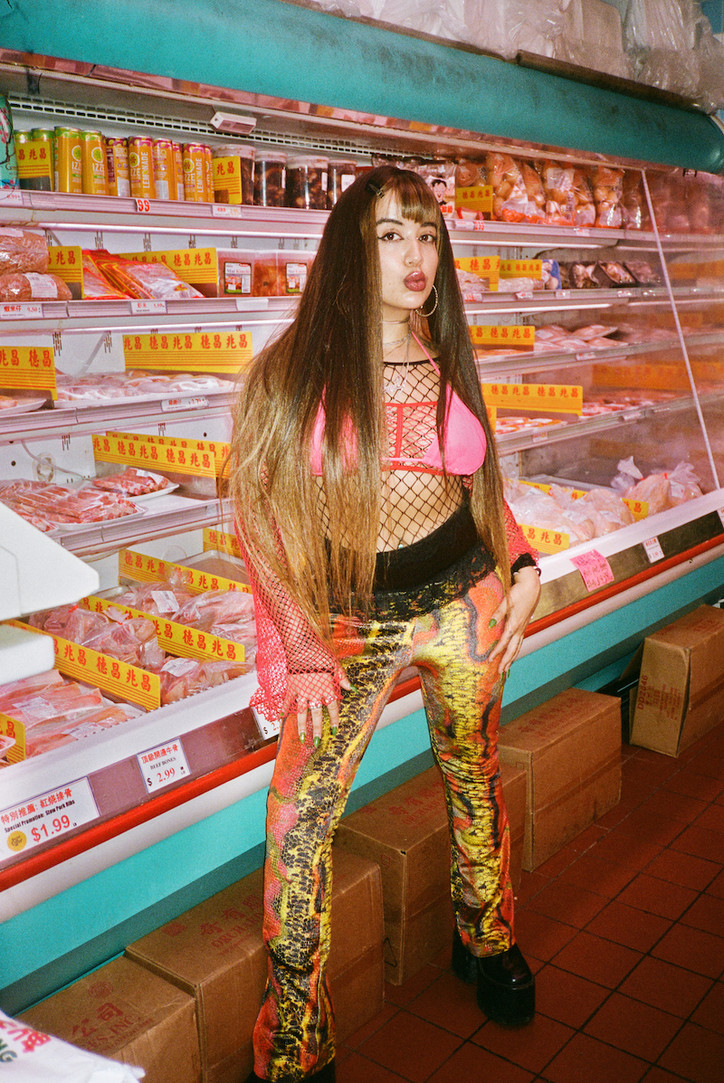
As it turns out, the music Pauli wanted to hear was a wide-ranging mishmash of everything. “I like genre blending and genre mixing. Playing as many genres as I can in an hour or two-hour set. I will read the room of venues and feel out what is gonna raise the energy the most. I’m not gonna play gabber at every venue I play. I’m not gonna play jersey or baile funk at every venue I play. I mix everything that’s high energy.”
Within this mix, listeners also find collaged sounds and homages to the internet meme zeitgeist. “I was a MySpace baby. I love the internet. The first 13 years of my life were spent in that time when the internet was blowing up [mainstream]. The internet was still this futuristic thing. I’d fight for my time share on a big Dell desktop to go on MySpace and look up music.”
This feeling of Y2K nostalgia permeates Pauli’s esthetic. From outfits that could have been sewn by Romy or Michele to mashups reminiscent of a MySpace welcome anthem. “The 2000s were so [self-consciously] futuristic. The music was so futuristic. Even Soulja Boy or Tela Tequila, The Millionaires. It’s nostalgic and relatable.” By placing these pieces of traditionally lower pop-culture into counter cultural spaces generally reserved for up-and-coming fine art, Pauli accomplishes a sort of post-modernist decadence.
Nostalgia and art-school ponderings aside, Pauli is foremost inspired by the city that raised them. The diversity of sound and sights and culture that constantly surrounds one in New York City. The music pouring from cabs, clubs, and apartments. The five block-parties you walk past while heading to grab a coffee. The three diasporas you venture through on your way to meet a friend at the closest park.
“[I can’t do that] mono-rhythm pots n’ pans. I’m like, ‘let me sprinkle something fun and relatable into this.’ Somethings that relate to my experience growing up in this city that’s so musically diverse.”
This sort of genre-blending stands in opposition to the larger techno nightlife norm of strict genre-adherence. “I’m not a hater,” they said. “But in the techno world people take that shit so seriously… Sometimes I’ll go to parties where they’re only playing monotonous techno, and I think to myself, ‘if I still did drugs, I’d be doing so many drugs right now,’ because the music is so boring. When all the music is the same, when every conversation is the same, when everyone looks the same… it’s not a reflection of New York City at all.”
As an extremely social person, who’s also very prone to anxiety, DJing allows Pauli to interact with large groups of people while maintaining control over their physical space and energy. “I’m someone people feel comfortable opening up to immediately,” they said. But I’m extremely sensitive to energy. A lot of people coming up to me at once overwhelms me. I can almost feel bits of people getting into me… Sometimes after big DJ sets, I feel drained. It’s like running a marathon.”
Thankfully, for their mental and physical health, they’ve gotten better at caring for themselves over the years. “I used to go out so much, I’d never sleep. But… now I understand the importance of [taking care of myself]. Making sure I eat healthy, making sure I drink water. Doing cleanses. Praying a lot. Cleaning people’s energies off my body…. I am still gig hopping, I have these long 15-hour / 16-hour nights, [I must] make sure I [take care of myself] and rest.”
This desire to take better care of themself has also drastically reduced their substance use. “I stopped doing drugs last year,” they said. “I got pregnant and got completely sober for the first time in 10 years.” While Pauli didn’t eventually decide to keep the pregnancy, they had committed to abstaining from unhealthy behavior while making up their mind. “During that time, I felt I was able to strengthen my intuition. My consciousness was heightened. One of my spirits told me to stop doing drugs… warned me of super messy situations. I enjoyed my time doing drugs… but it’s time to cut it out…. The line between recreational and habitual [became] mad thin.”
“I think my music has gotten better. I’ve become more attentive. When I DJ I go into these sorts of trances and drugs interfered with that. It feels more raw…. It’s not a moral thing…. I love my friends who use drugs, but it’s no longer for me. I had to stop.”
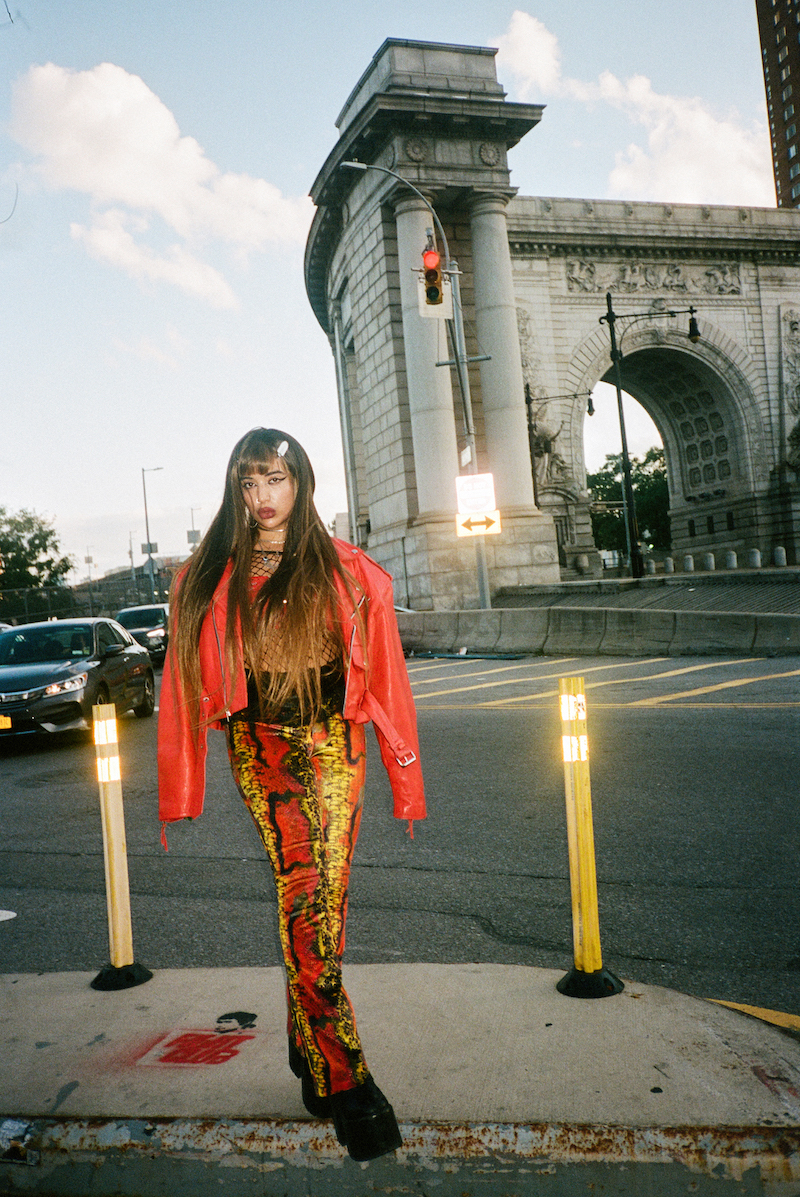
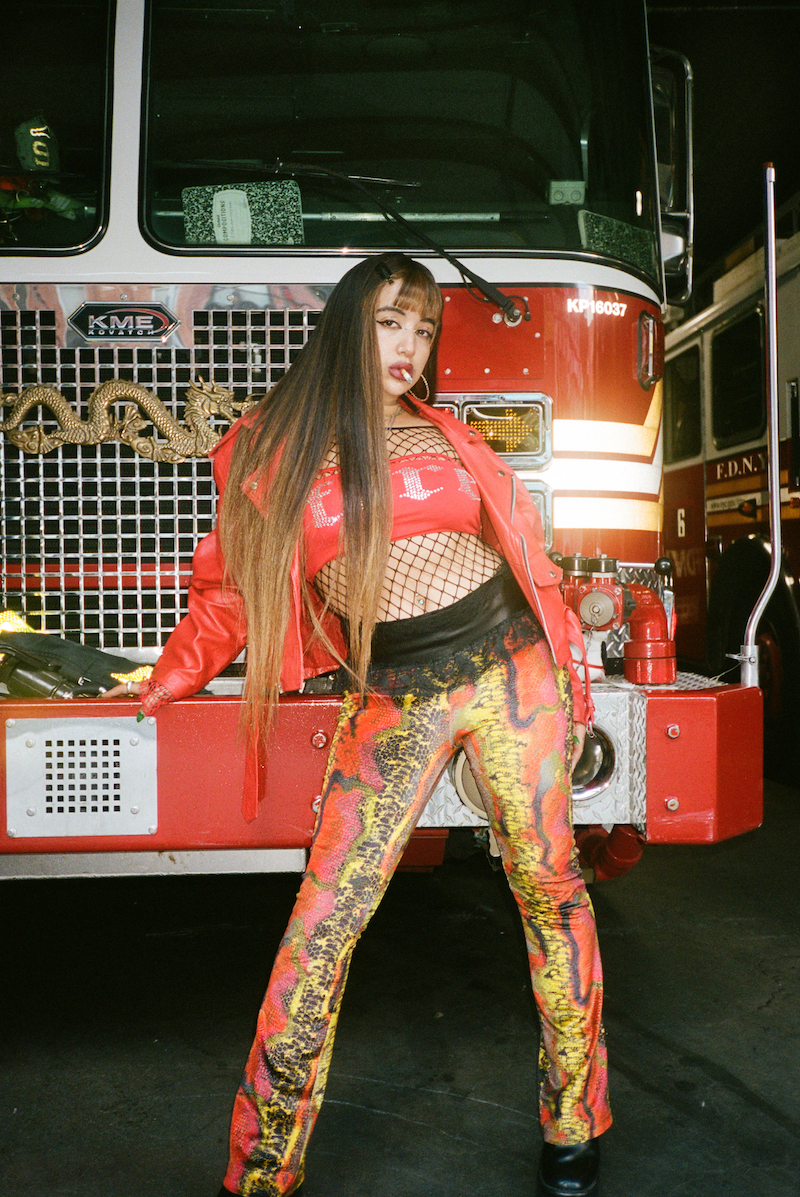
For people wanting to throw their own DIY event, Pauli has some tips on reducing harm and creating a safer space. “First of all, free water… our bodies are 70 percent water, when we are dehydrated things [get dangerous]. Second, when throwing an event in a DIY space or anywhere that’s not a conventional venue, try to imagine anything that could go wrong and then fill in those gaps. If there is a section of the space that has exposed wires, fence it off…. Have Narcan, have electrolytes, have glucose on hand. Plan for disaster. It’s like having a baby; childproof.”
“Nightlife is like a garden where people can plant their seeds and just blossom…” they said, before tilting their head to the side and raising their shoulders… “or not. There’s also a lot of weeds. The same way people can flourish from it, they can die… It’s not that nightlife destroys people’s lives, it’s that they’re not in a place where they can set boundaries for themselves and can’t say ‘no’ to anything. Sometimes people get caught up in the toxic aspects of it but that’s a part of everything in life. There’s a duality to every space you enter, even if it’s a [traditional] church.”
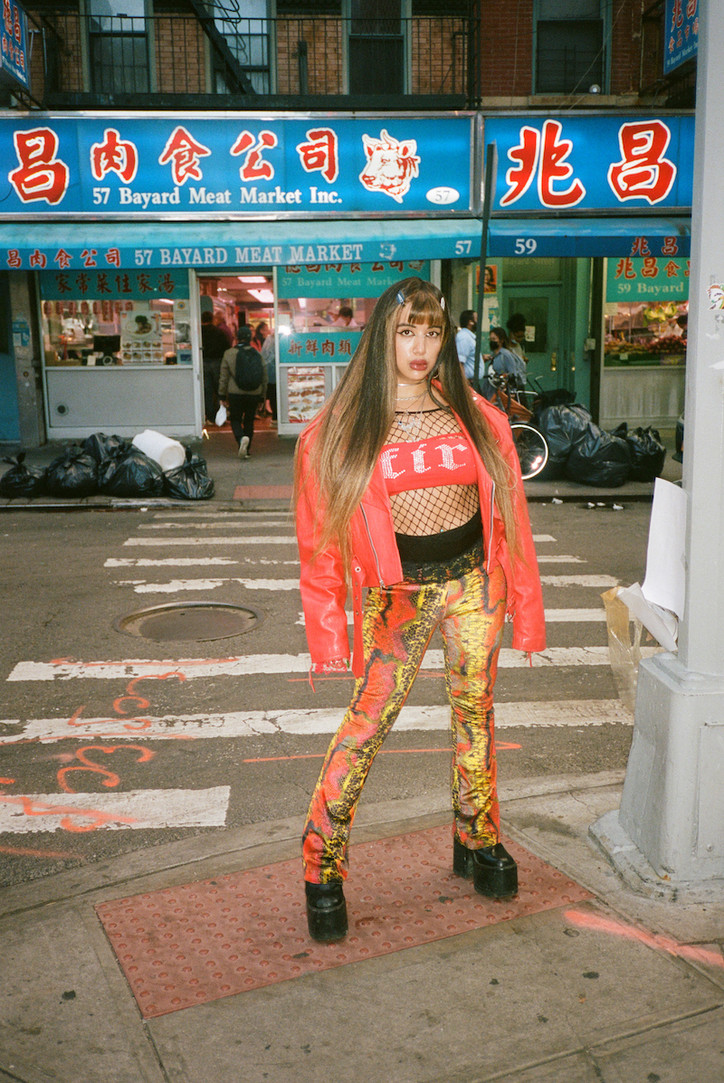
While Pauli is currently against what they see as “cancel culture,” they were once an active canceler. “There was a time in my life where I was viewing cancel culture and publicly defaming people as a step towards justice for someone who’d been harmed,” they explained. “But as I’ve gotten older and matured, I’ve realized it’s not a productive [mode of justice]. We are moving away from providing compassion for those who have done harm and away from providing care for those who have experienced harm. [Cancel culture forces] victims to hyper-focus on their trauma. It doesn’t contribute to any cycle of healing. [I’ve learned a lot by reading] We Will Not Cancel Us by Adrienne Maree Brown.”
Going over to their bookshelf, Pauli searched for the book, before tossing it into my lap. “When I was engaging in cancel culture I was acting out of my own trauma. I was thinking in a binary way, ‘oh this person hurt someone, they deserve to be hurt.’ That’s the same system the police use to lock people away for the rest of their lives. I believe in transformative justice and intrapersonal conflict mediation. I’ve had experiences where people have tried to cancel me, where people have tried to define me by a mistake that I’ve made… it takes the humanism out of things…. As Adrian Marie says, cancel culture is a ‘feeding frenzy.’”
For Pauli, cancel culture works in opposition to a larger philosophy of harm reduction—and Pauli sees harm reduction as a vital tool in prolonging the longevity of nightlife and protecting its members; who, throughout history, have often been those at the forefront of art, culture, and activism. Nightlife fostered our Van Goghs and Basquiats, our David Burnes and Bad Bunnys, our Sigmund Freuds and T.S. Elliots, our Harvey Milks and Marsha P. Johnsons. Whom amongst us, wriggling and writhing and hopping on a sticky dance floor to Pauli or a musician like them, might join their ranks? And would that even be possible without the experiences and connections made within culture-focused frivolity?
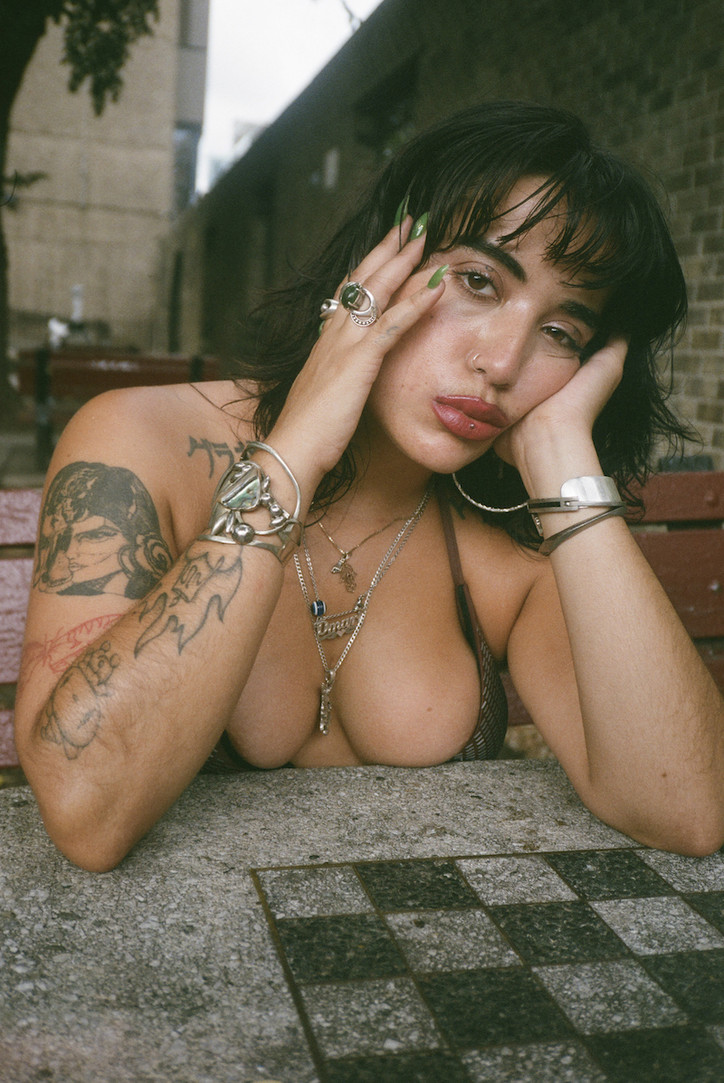
“I always knew I wanted to be known in New York for something,” they said near the end of our time together. “I had all these issues; fighting, getting bullied, being institutionalized a few times—just being a problematic kid. But nightlife made me feel larger than life. When it started really happening, I didn’t question it. It made sense. I wanted to meet everyone, I wanted everyone to know me. I wanted to look good and feel good. New York City is just a hyper fucking city, there’s so much going on here all the time. I always wanted to be in all of it all at once.”
I called my car home and left with another hug, grateful for the vulnerability and honesty Pauli had shared with me. My headphones in, my finger poised to play a podcast, my car arrived. Getting into the back seat, I decided to take out my headphones and roll down the window. As we drove north in Ocean Side, up into Bushwick, sounds poured from other cars, barbeques, and stoop parties. Migos’ base broken by an ice-cream truck’s jingle, which melted into an old gospel song before grinding into some reggaeton. The city sweated and danced to its song, revving up with half the chorus to Smells Like Teen Spirit fighting with a rival car’s “that’s my best friend,” before sirens and horns plunged the tune into a little Nina Simone. And, in the distance, I almost heard the familiar call of Crazy Frog.
